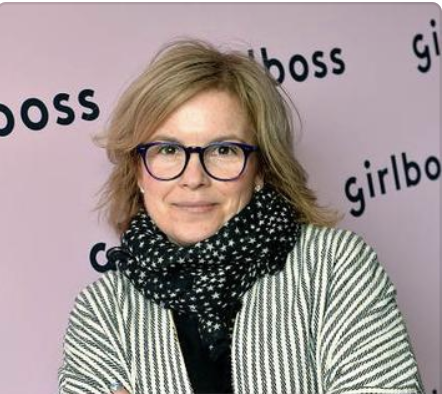What I Learned from 10 Years Working with Barack Obama
I joined Barack Obama's team when he was just a freshman senator, and spent the next decade criss-crossing the country with him. Here's my story.
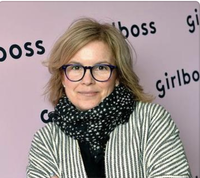
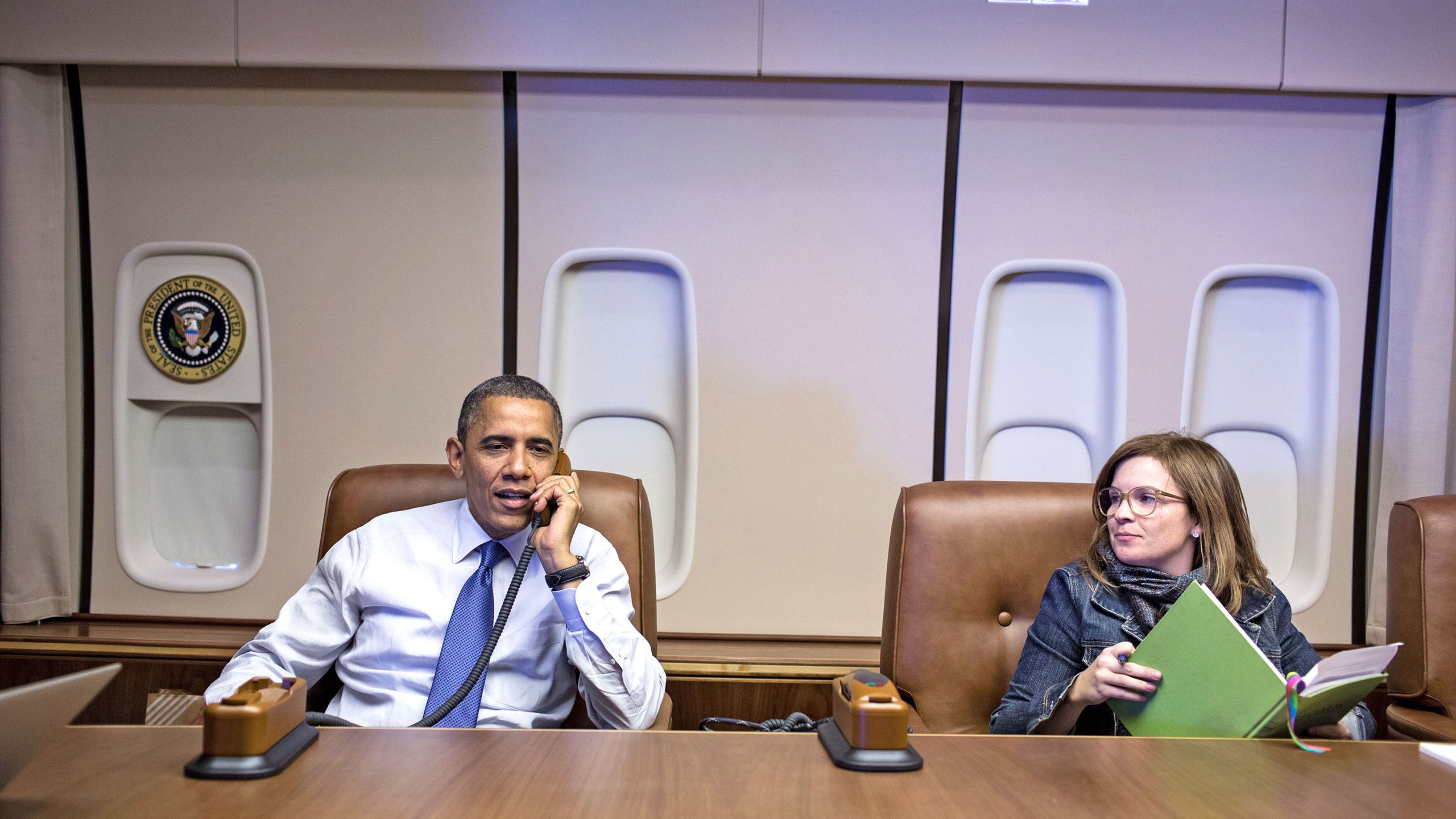
After I became then-Illinois Senator Barack Obama's adviser/ director of scheduling in late 2004, [chief of staff ] Pete Rouse became my spiritual guide and mentor. Pete had worked on Capitol Hill for about 40 years, many of those as chief of staff to Senate majority leader Tom Daschle, and was known as the "101st senator" and "mayor of Capitol Hill." He knew everyone and didn't like talking to any of them. Walking the halls with him always involved some commentary on the people he considered to be violating his personal space.
There is no one more thoughtful in the way he gives advice. He returns every e-mail, makes every connection, and does it all while being a wheeler and dealer. His code name in the White House was "Possum," which is why from here on out, he will be referred to only as Possum. Also, he loves cats.
When we got to the Senate, Possum drafted one of his famous "strategic plans"—lengthy, painfully thorough memos about how to get something done. In this case, it was the strategic plan for Senator Obama's first year, and it could be summed up as "workhorse, not show horse." It included lots of time with constituents and in Illinois, and less time with D.C. insiders and celebrities. Obama was quite fine with that. Every decision we made had to stand up to the workhorse vs. show horse test.
One night, Senator Obama walked in on me doing sit-ups on the office floor. Most senators would have been appalled; he said, "Good for you."
Obama had a political action committee called the Hope Fund that was right down the street from the Hart Senate Office Building. The Hope Fund ran initiatives for getting young adults from diverse backgrounds into community organizing and politics; it also managed Obama's political engagements. I had been working in the Senate office for a little over a year when Possum decided that I should replace the Hope Fund's outgoing political director, who was moving to Paris.
Initially, I was psyched. I thought "political director" was an awesome title. I would be lying if I said I really knew what the job entailed, but I trusted Possum to know what was best. Before I was offered the job, I had been working in the back office with Favs [Jon Favreau, speechwriter], Tommy Vietor [spokesman], Possum, and [press secretary Robert] Gibbs. I loved it there. We sat near the back door of Senator Obama's office, so he would come out and visit with us a lot. Sometimes he would come to talk about policy issues; sometimes he and the guys would talk about sports. (I would chime in about gymnastics, swimming, and ice-skating during the Olympics, but that's about it.) On occasion, we might have a little squabble over Mariah Carey. (The specifics of the squabble are classified.) I think it was back there that we all really developed a bond. One night during a vote-a-rama—what usually happens before the Senate breaks for a recess and they vote on measures late into the night to get everything done—Senator Obama came out the back door and walked in on me doing sit-ups on the floor. Most senators would have been appalled; he said, "Good for you." On Friday mornings, after a bad Thursday, Tommy and Favs and I would get French toast from the cafeteria. On Friday nights, the bros and I would get the $7 Maniac Special (tempura, sushi, and some teriyaki) at Kyoto.
After I reflected on all the good times we'd had in Obama's Senate office, I had a meltdown. The prospect of moving three blocks down the street to work at the Hope Fund filled me with dread. Why? I had a lot of bad reasons. I was happy for the promotion, but it was definitely outside my comfort zone. I don't love talking to people I don't know, and this job would put me in charge of our political engagements for the 2006 midterm elections; I would also manage Obama's profile and relationships. That was a lot of responsibility, and it would be the first time I was really at the tip of the spear—this was going to be my first experience being The Boss. I did not get the impression that the Hope Fund staff was psyched I was coming down there, either. I had no reason to feel that way, but that didn't matter!
I dragged out the transition for a few weeks. Each time someone asked me why I was still in the Senate office, I had a different excuse, but I never deviated too far from, "Wrapping up a few projects!" I thought I had everyone fooled—until one day when Possum called me into his office and asked, "Why the hell are you still here?"
Get exclusive access to fashion and beauty trends, hot-off-the-press celebrity news, and more.
As soon as he asked, I started to cry. That's right. I cry a lot, but I generally think it's not OK to cry in front of your boss. If you're feeling real emotion about something that merits strong feelings, fine, but at best, you come off as "sensitive," and at worst, you seem like you're trying to use your tears to get what you want. I told Possum I was afraid to leave; he told me I had one hour to pack my stuff and get to the Hope Fund office, three blocks away from $7 Maniac Fridays and all my friends.
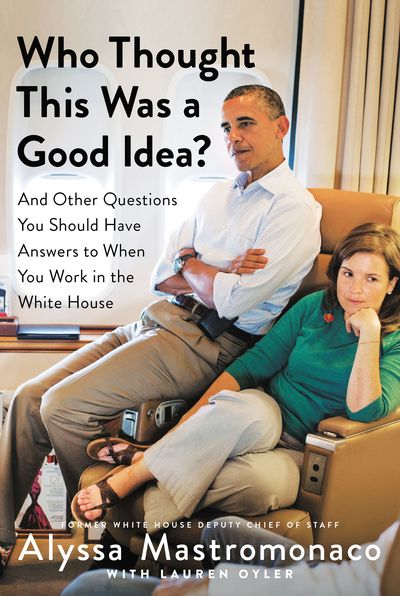
Mastromonaco\'s new book
This was NOT a big deal, but I felt like it was. I argued that I was probably too important to leave the Senate office, that Obama needed me nearby (he didn't), and that I should probably stay. Possum told me again, loudly, to get out of the office and start my new job. He was mad. I knew he had decided to move me over in part because it would benefit me—undoubtedly, I would be able to grow and develop a new skill set. I was being my own worst enemy.
One of my main goals in writing my book is to give you the permission to admit to feeling or doing things that are silly; once you do, you can get on with your life. So here it is, the real reason why I didn't want to go down the street: The crew at the Hope Fund had been together since the Senate race in 2003. They were all friends, and I really didn't want to be the new kid.
Often, when you're dreading something, it can feel as if there is just no possible way that whatever you're dreading will actually happen—as if some goddess of serendipity will surely swoop in and stop it in the nick of time. The test you haven't studied for will be rescheduled for next week; the guy you've really been meaning to break up with will tell you he's decided to move to India to embark upon a life of meditation but will always love you and remember the times you shared; the cockroaches in your apartment will be revealed to have been a very involved art project your roommate was working on, so you're not going to have to argue with the landlord and call the exterminator nine times and be afraid of going to the bathroom in the middle of the night for several weeks. The goddess of serendipity almost never swoops in.
I packed up my stuff and moved down the street. It took me a few weeks to start feeling comfortable. In late May 2006, Reggie Love came down to the Hope Fund, too, and became my deputy. He had graduated from Duke University the year before, where he'd been a star on the football and basketball teams, and Possum hired him as an intern in the Senate office. By the time I understood how big my job really was, I knew I needed help, and Reggie was the guy. He started traveling with Obama on complicated political trips and helped me do outreach (checking in with supporters, tracking elections, etc.). Obama was on the Senate Foreign Relations Committee (SFRC), and he made his first trip to Africa that summer. Gibbs and Mark Lippert, our SFRC staffer, managed that trip, and Reggie and I focused on political travel and plans for Obama's book tour for The Audacity of Hope, which would kick off in September.
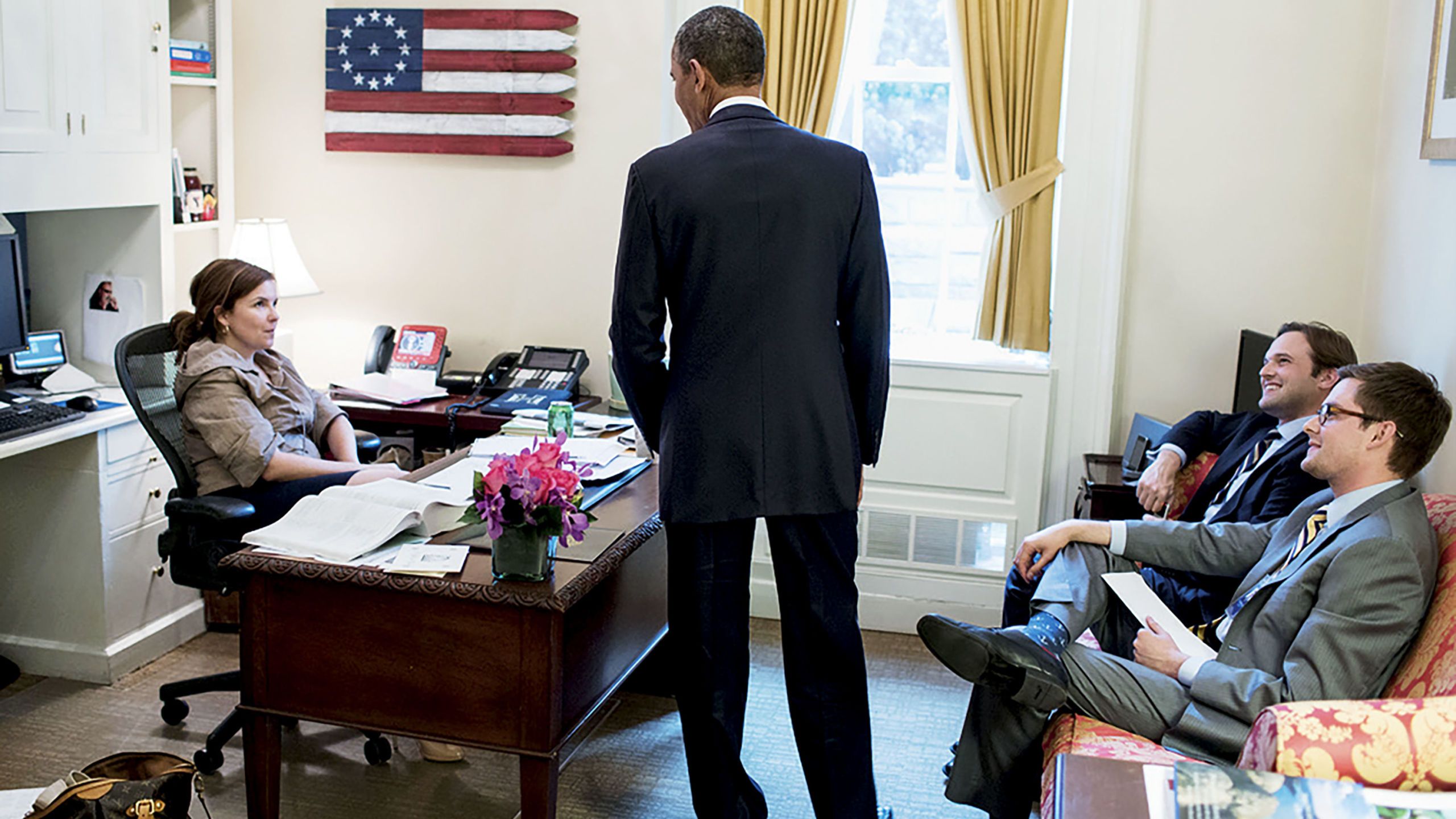
Receiving POTUS in her White House office, with special assistants to the president Joe Paulsen (top right) and Bobby Schmuck, 2013
While Obama was in Africa, I wrote the political plan for the 2006 midterms. A political plan is basically the who/what/when of the year: key people Obama should be seeing, major events that we should be planning around, and how it all fits together so that at the end of the year, you can say, "We wanted to get XYZ done, and we did." (Or didn't.) It was also a very good way to make sure the most senior people and Obama were aligned on the mission. In Obama's case, we all felt like the midterm elections were his chance to really arrive—we saw how popular he was, he was getting all these crazy invitations, and we wanted him to use that momentum to be a workhorse on behalf of Democrats running for reelection. Our political plan included introducing him to labor leaders, state party activists across the country, and what we called "rising political stars"—people who were like he'd been a few years earlier. (One person on that list was Eric Garcetti, now the mayor of L.A.; another was Cecilia Muñoz, who at the time was at Latino civil rights organization the National Council of La Raza.) We wanted to make sure that, for all of the fancy, high-profile people who would reach out to meet him, he was also spending time with lesser-known thought leaders. Obama himself felt this was important, too.
There are probably a lot of people with my job who would not have committed a plan like this to paper. It was ambitious and complicated. But I was raised in the Possum school of memo writing, and I think that he and Gibbs wanted to see what I would do. It was entitled "The Political Plan for the Best Candidate Not Running for President."
Every candidate for the House and Senate wanted Obama to headline their events. Things were getting crazy.
As soon as Obama came back from his trip to Africa, his publisher started calling. One after another, his book tour events were selling out: Would it be possible to move them to bigger venues? On top of The Audacity of Hope, we layered on political and Hope Fund travel. Every candidate for the House and Senate wanted Obama to headline their events. Senator Tom Harkin from Iowa invited him to the annual Steak Fry fundraiser—THE place to be if you're a politician who wants to run for president or get national attention. Things were getting crazy. Obama never faltered (and if he did, he was mostly joking). At one point, we were doing an event for Cory Booker in Newark, New Jersey, and from there we planned to fly Continental Airlines to Providence, Rhode Island, where we had scheduled a fundraiser for Sheldon Whitehouse, who was running for Senate. Halfway through Booker's event, we got a note that all Continental flights had been canceled because of weather. Bad! I got on the phone to try to find a private plane, a helicopter, anything that would get us up there; if senators managed to snag an event with Obama, they really looked forward to it. They raised so much more money, and the atmosphere was electric.
After a few calls, it seemed like there was nothing we could do. We couldn't get a private plane or a helicopter on such short notice. A train would take too long. But even though we had every excuse to cancel, Obama was not going to let Whitehouse down: "We don't disappoint our friends." He suggested we rent a car. I was not going to be in the driver's seat with Obama during bad-weather rush hour, but I was able to secure a car service, and we spent the trip up to Rhode Island reading People magazine in the back.
Some combination of me, Gibbs, Reggie, and the finance directors for the Hope Fund, Jenny Yeager and Jordan Kaplan [who are married now, with three kids], criss-crossed the country with Obama for more than two months. When you got back to the hotel every night, you passed out cold, but the response to Obama was exhilarating.
Obama came over and told me that he had "found someone" for me and that I should "get off the couch and come be social."
We all spent a lot of time together. Jordan and I would get on Obama's nerves by singing in the car—Obama was always in the front with the volunteer driver, and like kids in the back seat on long trips, Jordan and I would sing along to whatever was on the radio. Once, when we were butchering a Motown song in the suburbs of Philadelphia, Obama snapped at us—something like, "Must you both?"—and we stopped immediately. We didn't know if we were in trouble; it felt like we were. But after a while, the silence was deafening, and he told us we could sing again. Another time, after we had all been served Obama's traditionally healthy road meal of grilled salmon and brown rice, he noticed I wasn't touching my food. "Aren't you going to eat something?" he asked. I had gotten so sick of grilled salmon paired with a complex carbohydrate that I couldn't eat any more; I told him no, it was too boring. "Food is fuel," he replied, and went back to his dinner.
Obama also enjoyed gossiping about my dating life (or lack thereof ). Once, we were at an event at movie producer Lawrence Bender's house in L.A.; Gibbs and I were in the den reading our BlackBerrys when Obama came over and told me that he had "found someone" for me and that I should "get off the couch and come be social."
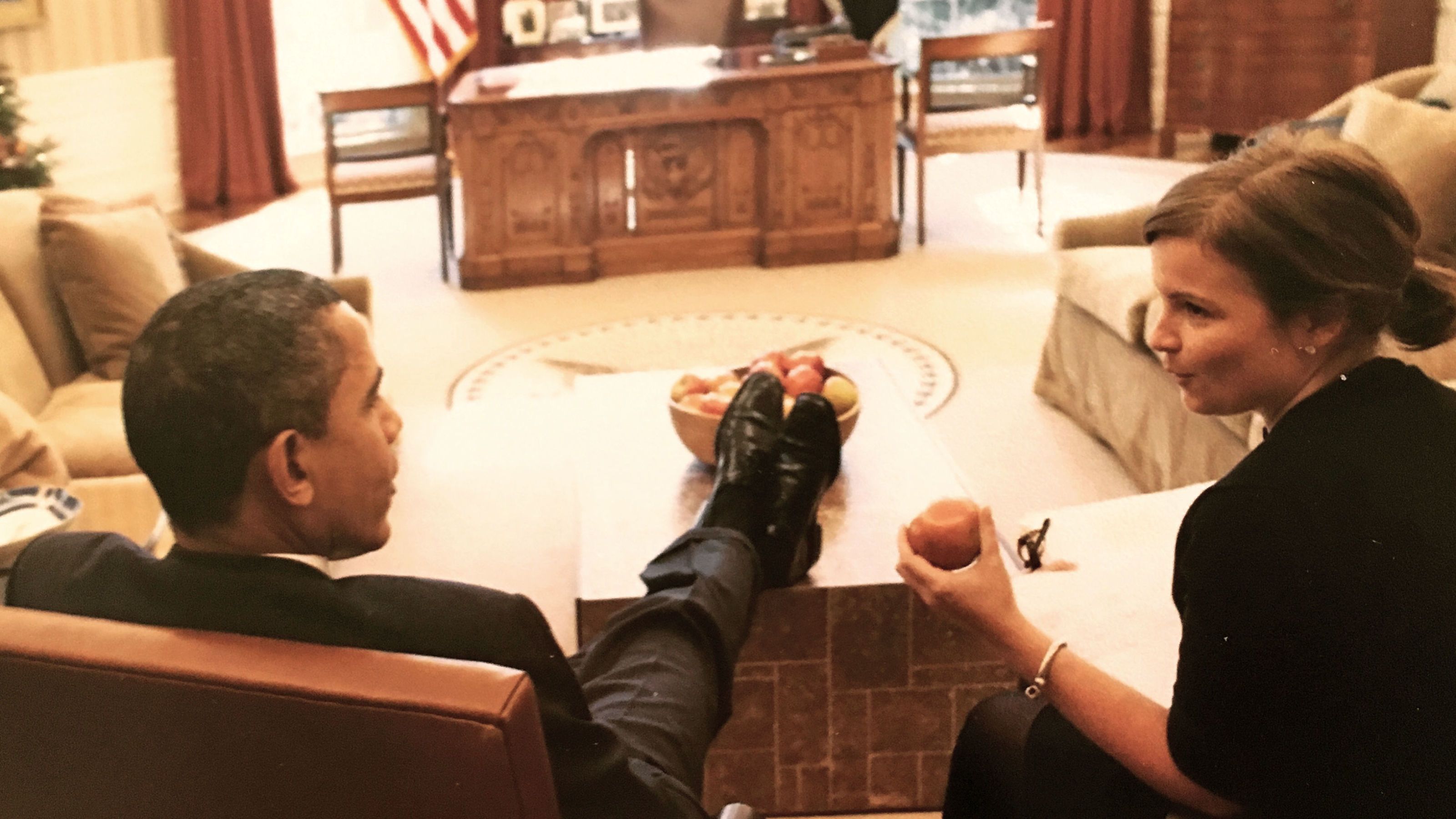
In the Oval Office, circa 2010
It turned out the person he'd "found" for me was Bender himself— the man who produced An Inconvenient Truth, plus Reservoir Dogs and almost all of Quentin Tarantino's movies afterward. I appreciated Obama's opinion of me, but I was pretty sure Bender was not going to be interested in me, or even understand why Obama was dragging my ass up to talk to him. I stayed on the couch.
Things got a little more serious at the end of October, when around 5 a.m. one day, I got a call from Rahm Emanuel, who was the chair of the Democratic Congressional Campaign Committee at the time—his job was to get more Democrats into the House and Senate. He told me that John Kerry had said something controversial while out campaigning hard for congressional candidates in the hopes of making another presidential run in 2008: He'd told a group of students in California that those unable to navigate the country's education system would "get stuck in Iraq." Republicans pounced. They tried to make it sound like Kerry, a decorated war veteran, thought our soldiers were dumb—that uneducated people end up in the military. That was absolutely not what he meant, but it didn't matter. George W. Bush had won in 2004 by painting Kerry as aloof and unpatriotic. He was toast. Tim Walz—a candidate from Minnesota— canceled Kerry's appearances in Mankato, and Rahm needed Obama and Hillary Clinton to cover all the events that Kerry was scheduled for that week. Rahm and I brainstormed three or four stops Obama could add to his next few days of travel. Talk about adrenaline; this was go time. We were single-handedly going to take back the House and Senate! It felt like the country was finally turning against Bush and the Republicans, and some dumb gaffe wasn't going to slow our momentum. We wanted Obama to be leading the charge.
Gibbs, Possum, and I agreed on all the added stops. We would do a big roundup going into Election Day—Missouri, Iowa, and Tennessee again, and we would even hit Arkansas to campaign for Governor Mike Beebe. Not many Democrats besides Bill Clinton were requested in Arkansas. I went in and pitched the new schedule to Obama.
"Who do you work for?" he asked. "Me or Rahm?"
I did not take the bait. My job was to be confident in my recommendations. This was his moment, and we were taking it.
"Come on!" I replied. "WE HAVE TO WIN!"
Obama was still firm that he was not thinking about running for president in 2008, that he was just out there working hard for the class of 2006. But the rest of us weren't so sure.
He laughed, said of course, and we hit the road again. We were doing election night in Chicago, and we had a little setup at the Hilton on Wacker Place, where Obama would get incoming election results and be available for live interviews. During a few hours of downtime, I went to the Bloomingdale's on Michigan Avenue and bought a pair of very proper, very adult, very political director-y Isaac Mizrahi heels. I didn't need them—Obama wasn't formal—but I was starring in this very West Wing scene playing in my head, and in this scene, I was not wearing Minnetonka moccasins.
The Democratic landslide started at around 7 p.m. While Obama was doing interviews, we were calling so many candidates to congratulate them (and slyly take some credit for their margin of victory) that I didn't have enough cell phones to go around. We were happy. We had met some really terrific candidates on the road, people dedicated to public service who would undoubtedly have a positive impact in Washington, and it felt good. I didn't feel uncertain about my job anymore; I had risen to the occasion and taken the help I needed along the way.
Obama was still firm that he was not thinking about running for president in 2008, that he was just out there working hard for the class of 2006. But the rest of us weren't so sure. I knew that if we were going to launch an exploratory committee, I would have to be ready.
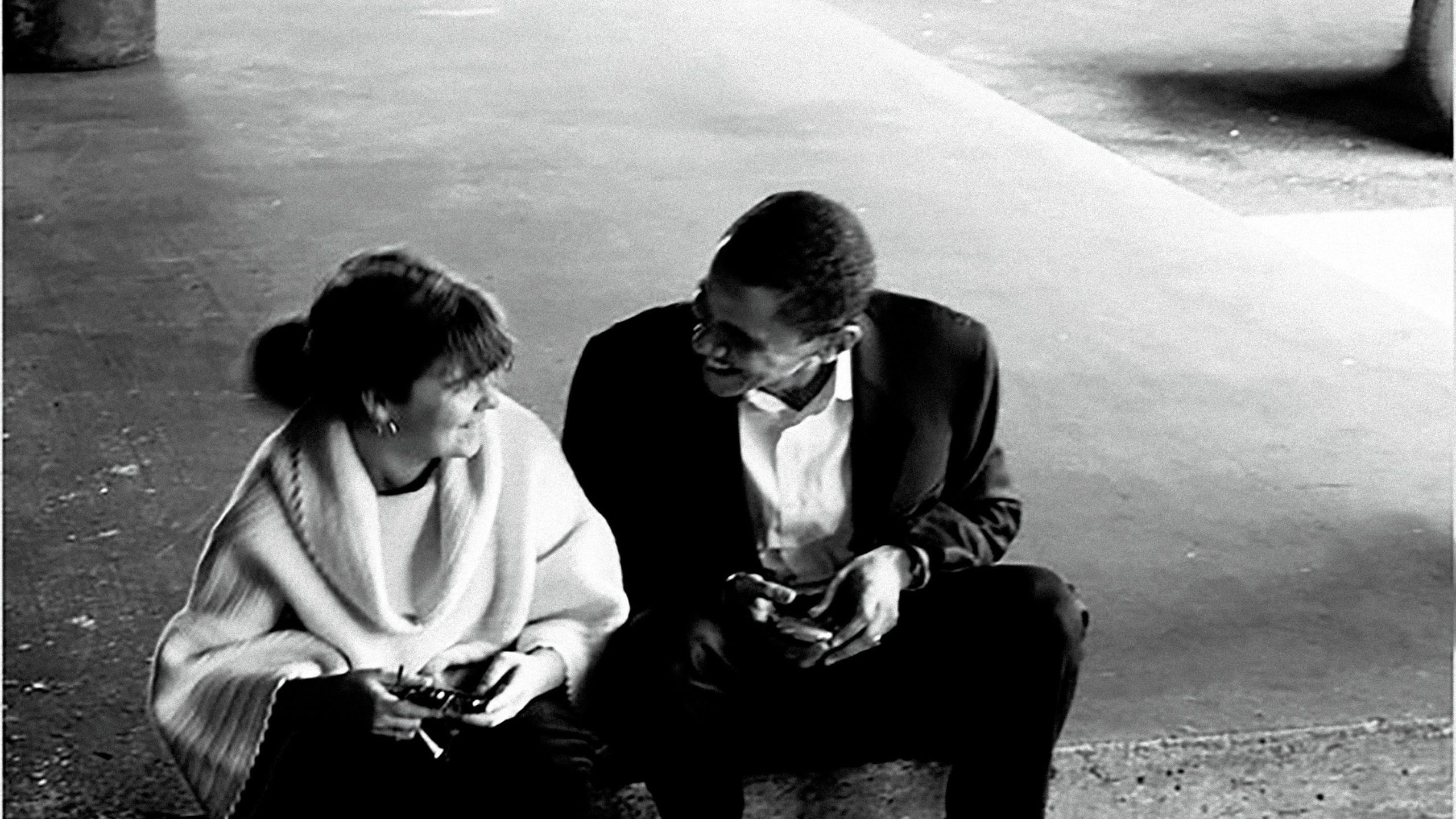
Alyssa Mastromonaco with then-Senator Barack Obama before a campaign rally in Columbia, South Carolina, 2007
Editor's note: Mastromonaco played central roles in Barack Obama's presidential campaigns and administrations, and in 2011, became the youngest White House deputy chief of staff for operations. She left the White House in 2014 and is currently president of global communications strategy and talent at A+E Networks and a contributing editor at Marie Claire.
Excerpted from Who Thought This Was a Good Idea?: And Other Questions You Should Have Answers to When You Work in the White House, by Alyssa Mastromonaco, to be published by Twelve Books on March 21, 2017.
This article appears in the April issue of Marie Claire, on newsstands now.
In her new book, So Here's the Thing, the former deputy chief of staff to President Obama writes candidly about the pressures women face.
